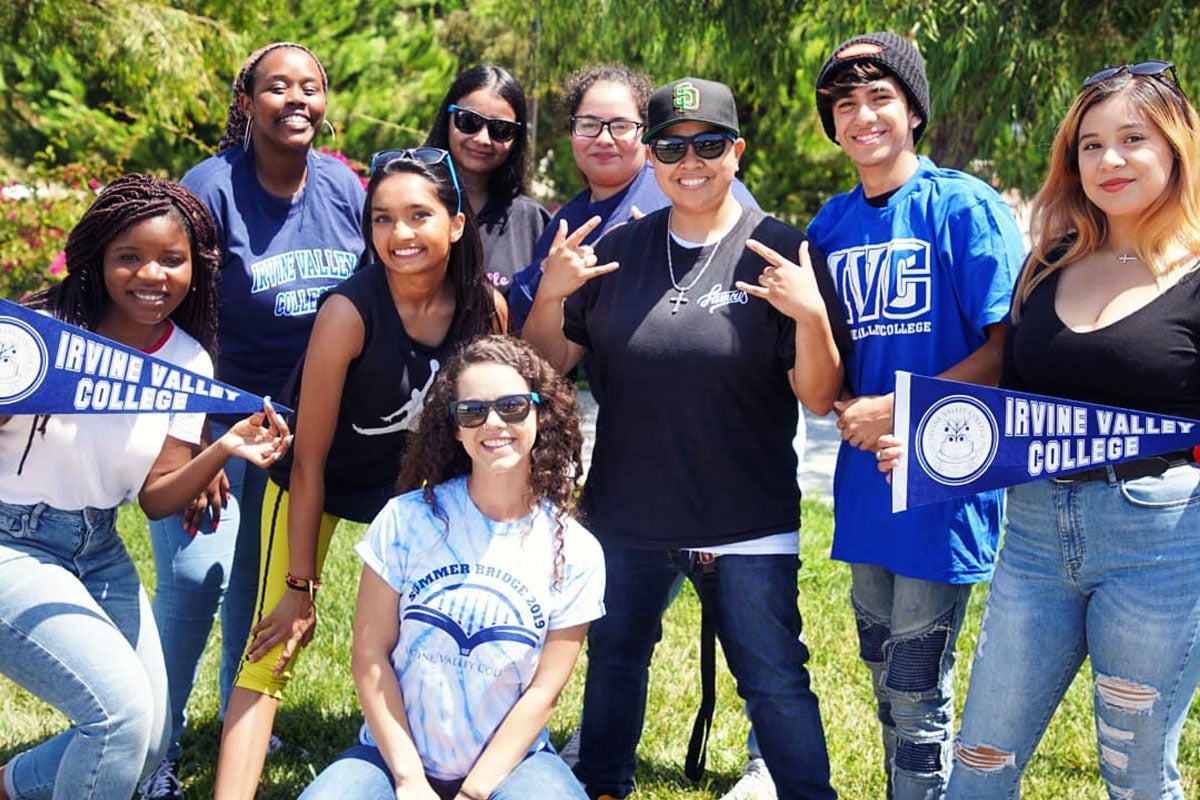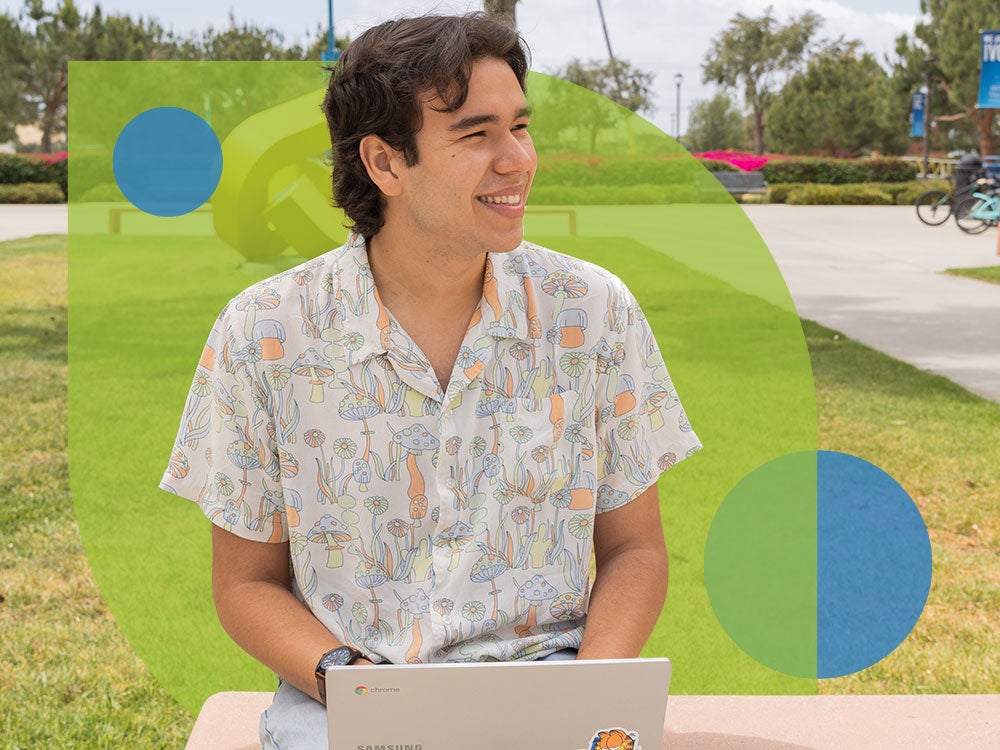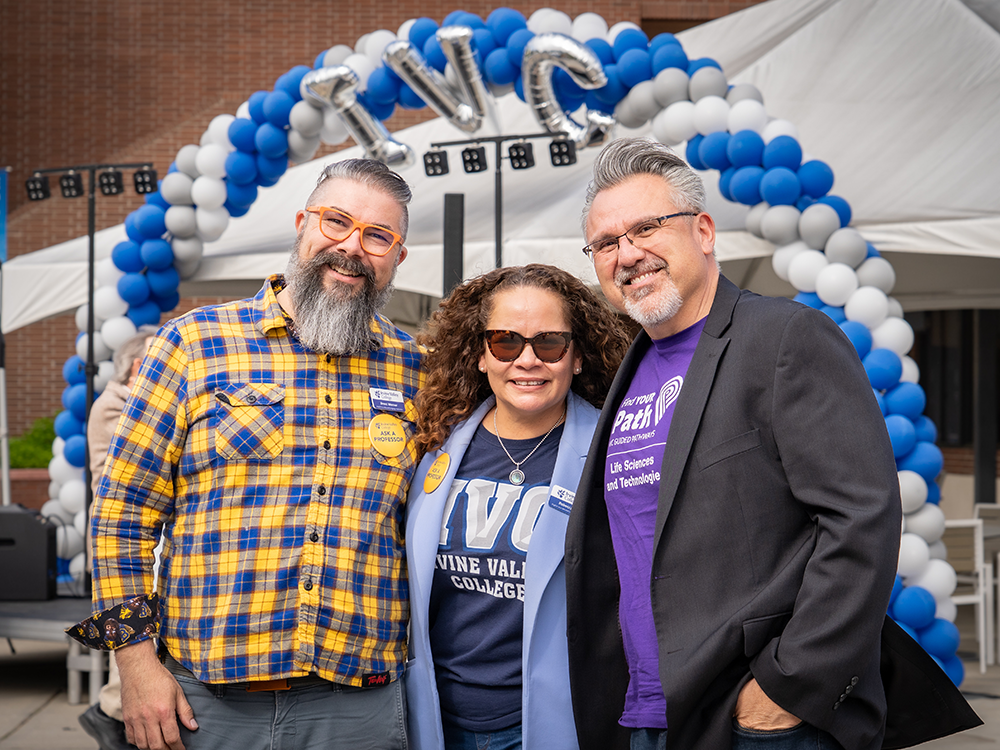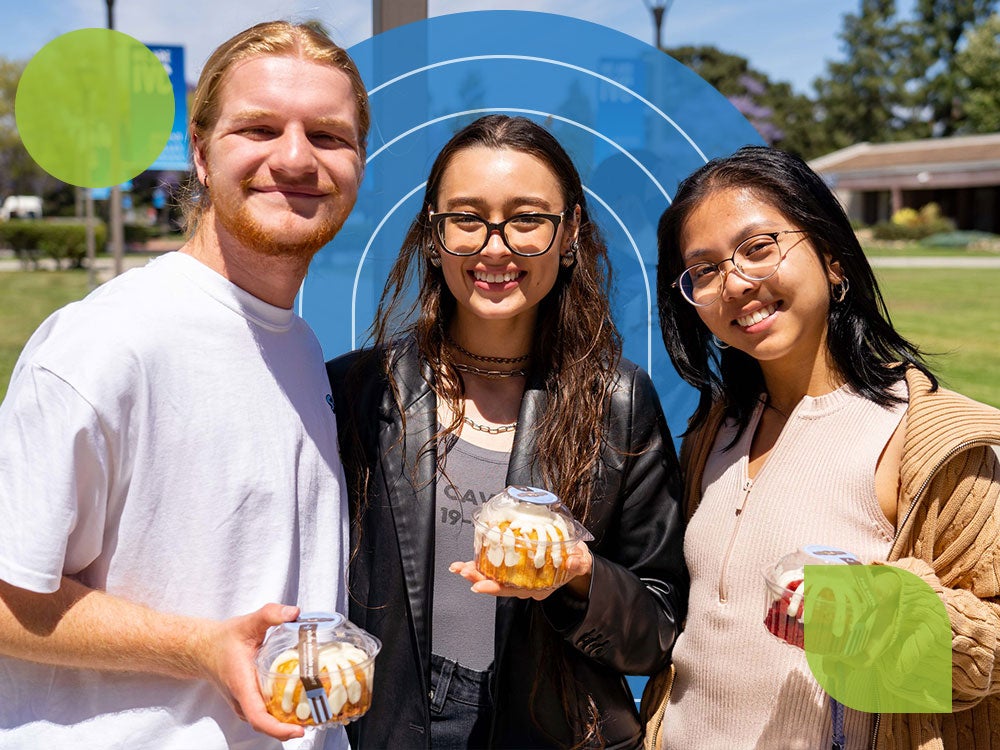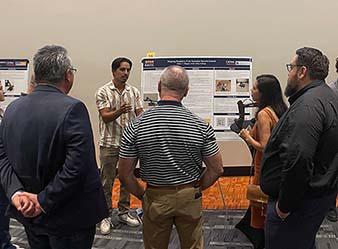This summer, four Irvine Valley College (IVC) students participated in Project RAISE (Regional Alliance in STEM Education) as part of the Undergraduate Research Experience (URE) at California State University, Fullerton (CSUF). IVC was one of nine area community colleges to have students interested in science, technology, engineering, and mathematics (STEM) conduct paid research at CSUF. This year’s cohort included 39 participants that received a $5,000 stipend for their research and participation.
Selected students gained first-hand experience in scientific investigation in a dynamic, collaborative research environment. Students were matched with CSUF faculty who provided training and support. In addition to research, participants worked to create a research poster and presented their findings on August 10 during the 10th annual CSUF summer research symposium.
Sheila Abdolmanafi, a biology major, presented her research project, “Novel Compounds That Reduce HEK293 Cell Proliferation Mediate Their Effect Through the Beta-Catenin Signal Transduction Pathway.” Abdolmanafi’s research was on treating HEK293 cells with novel compounds to decrease cell proliferation through hyperactivation of GSK3 and subsequent degradation of β-catenin. The hypothesis testing used a series of compounds made in Dr. Peter De Lisjer’s lab at CSUF synthesized as anti-cancer drugs. The compounds have a similar structure and effect as the drug Niclosamide, which is known to be an oral medication used in cancer therapy. A successful anti-cancer agent should induce cell cycle arrest in cancerous cells and potentially be therapeutic. This fall, Abdolmanafi plans to transfer to the University of California, Riverside.
Alyssa Agarie, a physics major, presented her research project, “Study of Filaments of the Nematode T. Aceti Using Various Oils.” Agarie’s research explored the motion of turbatric aceti nematodes, very small slender worms, under different conditions. In favorable conditions, nematodes can synchronize their body movement in a collective motion. Agarie used four oils with various viscosity to determine if the nematodes could continue their collective motion in the liquids. The motion was quantified by measuring four parameters, and it was discovered that nematodes could not produce collective motion in oils with high viscosity. Agarie will be studying at IVC this fall and plans to transfer to a four-year college where she will continue pursuing her bachelor’s degree in physics. She plans to go to a school specializing in research since this program has developed her interest in pursuing a master’s degree.
Areeba Islam, a chemical engineering major, presented her research project, “In Silico & In Vitro Development of DNA-based Aptamers for Small Molecules.” Islam’s research project used in silico, computer-based, and in vitro, lab-based approaches to develop DNA-based aptamers to target specific molecules. Islam applied SELEX-based screening and Python-based machine learning techniques to identify patterns in single-stranded DNA (ssDNA) aptamers with high binding affinity to various targets. A high bonding affinity means a strong interaction between the aptamer and the target molecule. The outcomes of this work hold promise for advancing the field of biosensors, diagnostics, and personalized medicine, paving the way for innovative applications in rapid and accurate point-of-care diagnostics. Islam plans to transfer to a university next fall and is looking into the TAG program for UCI. She will be finishing up classes at Santa Ana College this fall.
Aidan Villegas, an electrical engineering major, presented his project, “Adapting Raspberry Pi for Excavator Remote Control.” The primary objective for Villegas’ project was to adapt a Raspberry Pi, a small affordable computer, to an existing toy excavator’s remote control enabling autonomous control and paving the way for testing an AI model. A key challenge was integrating the Raspberry Pi with the remote control’s manual joysticks to achieve movement of the excavator. Villegas wired digital potentiometers to the remote control to translate the signals from the computer into a joystick. Villegas achieved rough communication and control over the excavator by developing and implementing a control code emulating joystick movement. This research contributes to the field of autonomous robotics by providing a versatile and cost- effective platform for testing AI algorithms in the context of construction machinery, which has potential applications in real-world scenarios. Villegas will attend the University of California, Irvine (UCI) in the fall. He plans to continue his studies in Electrical Engineering.
The Undergraduate Research Experience provides students in science, technology, engineering, and mathematics (STEM) from Citrus College, Cypress College, Fullerton College, Golden West College, Irvine Valley College, Orange Coast College, Saddleback College, Santa Ana College, and Santiago Canyon College an opportunity to conduct research at California State University, Fullerton (CSUF) in an 8-week summer program. Hispanic/Latinx students were strongly encouraged to apply.
For IVC information, visit Project RAISE or speak to Judith Benavidez in the IVC Counseling Center for information about how to apply for the 2024 Undergraduate Research Experience.

